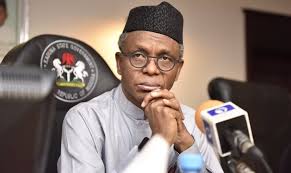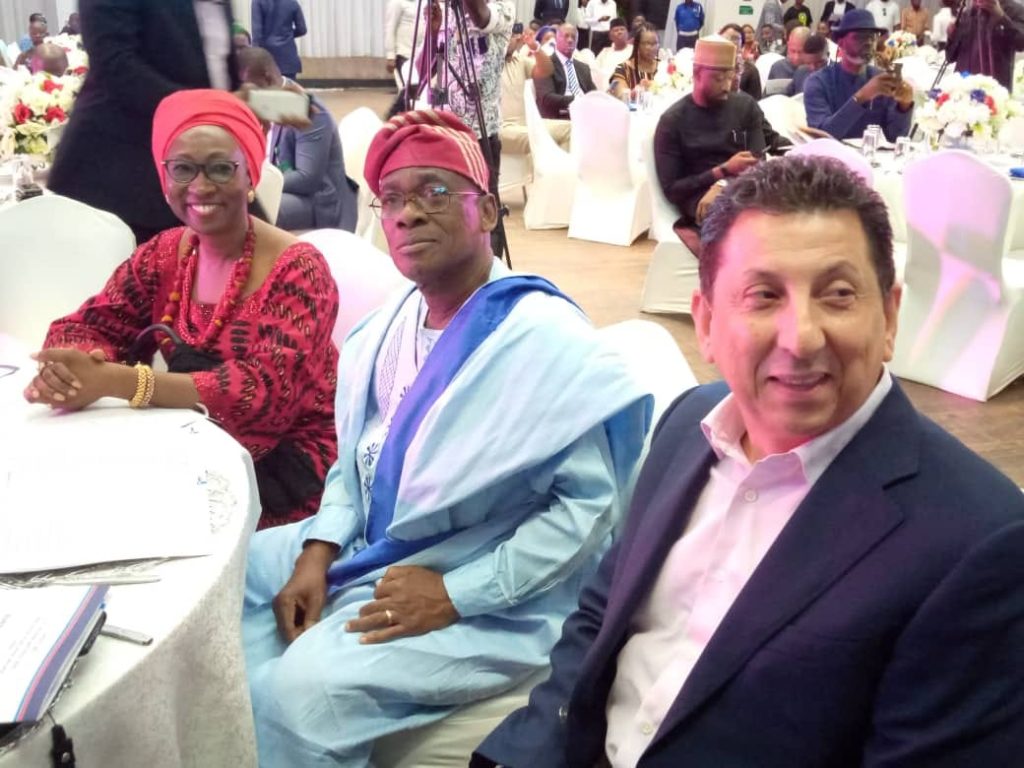By Aaron Ukodie

The Governor of Kaduna State, Nasir el-Rufai, evoked memories of wrong doings of the past in the telecommunication sector when he declared at the 20th anniversary celebration of the Association of Licensed Telecommunications Operators of Nigeria (ALTON) that he is happy that NITEL died.
“I am happy that NITEL died. It deserved to die. It was retarding the progress of the nation. The telecom revolution caught them unawares”, el-Rufai, declared with a sense of accomplishment.
What the governor did not tell his audience though was the role he played in ensuring that NITEL never survived. For, as a fact, the governor, was once a contractor to NITEL and had interests in one of the private companies that fed from the facilities of the public telecom company. His company was one of the contractors engaged to build NITEL’s headquarters in Abuja. That building project was abandoned half way.
Professor Buba Bajoga, Managing Director of NITEL between 1995 and 1999, was unwilling to accommodate the private telecom operators (PTO) that were licensed to provide alternate phone services, because he considered them as parasites out to feed from the public network and was not disposed to giving access to the private network.
During his time the interconnect regime, as many of ALTON members testified yesterday were skewed in favour of NITEL, because Bajoga claimed that it had all the facilities the private companies used to provide commercial services. Bajoga’s stance made it difficult for the private companies to get interconnect and exchange facilities from NITEL, a situation which made it difficult for them to operate.
El-Rufai was also saddled with the responsibility of ensuring that NITEL was privatized to prepare it to face the challenges that the GSM companies were coming with.
But as DG of BPE el-Rufai, aborted several plans by NITEL to rejig itself and prepare for the oncoming competition.
Contrary to what el-Rufai claimed, the NITEL management was not caught unawares by the threat the GSM companies were bringing to the table. In 2000 the management of NITEL led by Dr Emmanuel Ojeba and Emmanuel Omeata designed a $1 billion expansion project which sought to expand and develop the fibre optic national transmission backbone, deploy both CDMA and GSM networks and finance the Lagos 250,000 fixed line project.

The management was to prepare NITEL for the demands of competition and the eventual entry of the GSM operators that were licensed in 2001. This project was, however stalled by the Federal Government due to the arguments put up by the Nasir el-Rufai – led BPE.
He was instrumental to the engagement of Pentascope, a portfolio company from Netherlands that had no experience in telecom management to manage NITEL, ignoring protests from the workers and other industry stakeholders.
Pentascope became the NITELs’ undertaker, as its officials hemorrhaged the Nigerian company uncontrollably, and went away with their deeds.
El-Rufai it was who, as seller of NITEL, told everyone who wanted to buy NITEL that the company was worthless and should therefore not attract any meaningful offer.
This line of speaking which many found curious at the time was one of the reasons the company could not be sold after over five successive attempts.
While el-Rufai yesterday celebrated the death of NITEL as what was necessary to bring about the water shed development of the telecom sector occasioned by the purposeful licensing of GSM companies by the NCC, other PTTS ( public telecom and telegraph entities) such as British Telecom, Deutche Telecoms of Germany, and AT & T of the United States were successfully privatized and their operations did not bar the coming of other GSM companies in those countries.
The fate that befell NITEL may have been the lot of the Nigerian Communications Commission (NCC) if its Executive Vice Chairman at the time, Dr Ernest Ndukwe had allowed el-Rufai to have his way.
While el-Rufai was scuttling NITEL’s massive infrastructure development, in 2000, he made spirited efforts to hijack the licensing of the GSM companies from NCC. In a public advertisement by el-Rufai’s BPE, the agency had said it was its duty to license the GSM companies, and not that of the NCC.
Ndukwe, would not allow it. He ran to the president then, Chief Olusegiun Obasanjo to complain. It was Obasanjo who called el-Rufai to order asking him to stay away from the NCC.
While it is true that el-Rufai’s deeds and misdeeds may have helped to chart the course of the telecom industry, there are many who alleged that his actions were motivated by personal interests.
As el-Rufai noted yesterday, it is true that some foreign companies did not properly assess the growth potentials of the Nigerian telecom market. Vodafone of the United Kingdom was one of them, who rejected a license offer of $1million in 2000 to come and operate a mobile network.
That rejection turned out to favour Nigeria, because after it the Ndukwe-led NCC opted for a beauty contest licensing approach that eventually raised $855 million in 2001 for Nigeria.
The fate that befell Nitel and all the botched efforts to sell the company by the BPE and the role played by the various actors are written in a book titled: The Privatisation of NITEL: An Archetypal Government Enterprise, written By Aaron Ukodie










